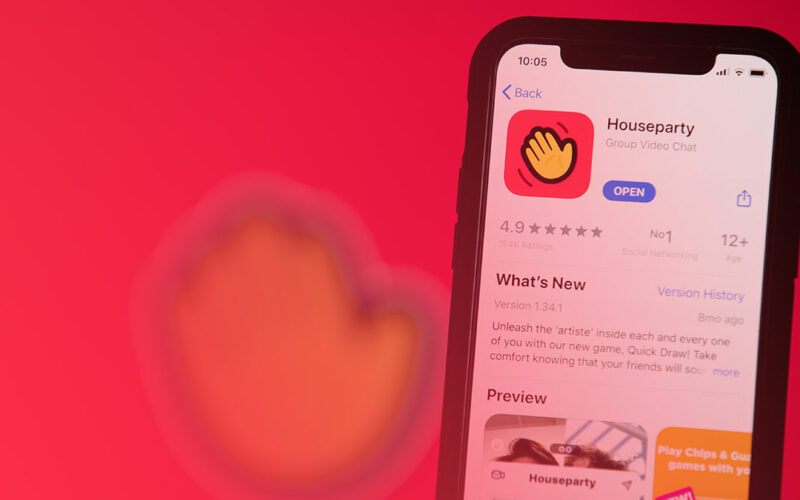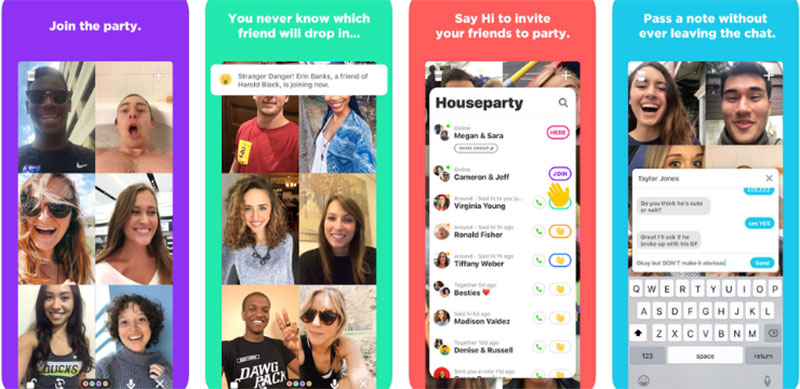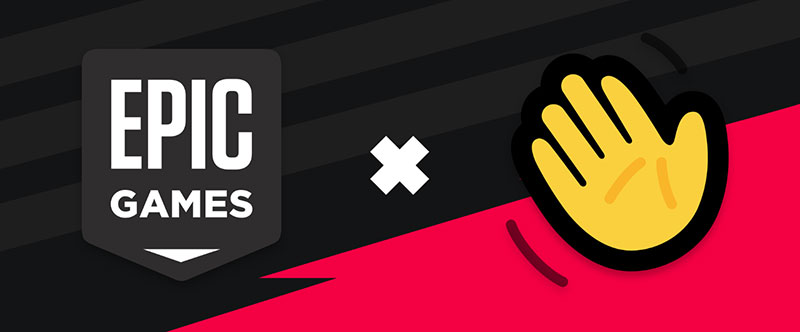Virtual Goodbyes: What Happened to Houseparty?

Remember the buzz of excitement at the ding of a new Houseparty notification? Suddenly, that sound has faded into silence, leaving many to ponder, what happened to Houseparty?
This enigmatic vanishing act of one of our go-to virtual hangout apps didn’t occur without a ripple through the pond of digital connectedness.
In this article, we delve into the threads of semantically relevant topics: from the unexpected shutdown announcement to the integration with Fortnite, and the search for a worthy Houseparty app alternative.
As someone who designs seamless web experiences, I understand the importance of not just the interface but also the lifecycles of the platforms we grow to love—and sometimes lose.
By the closing paragraph, you’ll grasp the intricacies behind the discontinuation reasons and the social media app trends that may have influenced the Houseparty app’s sunset.
As we unpack these layers, we’ll navigate through the rise and fall of social platforms, akin to the dynamics of a well-executed interface design: complex, purposeful, and ever-evolving.
The Founding Story
From Meerkat to Houseparty
Rewind to 2015. SXSW was the stage, and Meerkat was the breakout star, grabbing headlines and turning heads.
This wasn’t just buzz; it was a full-blown swarm, with the app soaring to stardom at the festival. You could stream live, and everyone was tuning in, but the plot had a twist coming.
Pivot from Meerkat to Houseparty by Life on Air

Life on Air, the brains behind Meerkat, caught on quick – live streaming was cool, but ephemeral group video chat? Even cooler. So they spun the wheel, pivoting with the kind of agility that would make a gymnast jealous.
Enter Houseparty, the new kid on the block, ready to flip the script on how we socialize digitally.
The Secretive Launch and Initial Success
And then came the secret sauce – a launch so hush-hush it could’ve been a spy mission.
The kind of move that had people stumbling upon it and whispering, “Hey, have you heard about this new app?” It was a word-of-mouth wildfire. And just like that, Houseparty’s initial success was like catching lightning in a bottle – rare, electric, and a bit magical.
So, what happened to Houseparty?
We’ve only just scratched the surface. It’s a tale of epic highs, techy lows, and the ever-changing tides of the social media ocean.
Buckle up; this story has more loops than your favorite rollercoaster.
Growth and Acquisition
Rapid Expansion
Talk about zero to a hundred, right? What happened to Houseparty wasn’t just a little growth spurt. We’re talking massive, like, Hulk-level expansion.
One day, it’s this niche app where folks are hanging out, and the next, it’s like everyone and their dog is on it. It was nuts!
The devs behind the scenes? They were hustling hard.
The engineering restructure wasn’t just some IT jargon—it meant they were under the hood, tuning up the engine to keep up with the stampede of new users.
Think of it like prepping a jet for takeoff. Only this jet was already mid-air and packing on passengers by the second.
And cash? It started flowing like a river after a storm. Funding rounds were popping off, and investors were lining up like it was Black Friday. Everyone wanted a piece of the pie—a pie that just kept on growing.
Acquisition by Epic Games

Then the plot thickens, like a good thriller. Epic Games steps in—yeah, the Fortnite folks.
The buzzword? Acquisition. It’s like Houseparty hit the jackpot on a slot machine.
Integration with Fortnite
Houseparty’s not just chilling on the sidelines anymore; it’s in the big leagues.
They integrate with Fortnite, and bam, it’s like peanut butter met jelly—a match made in heaven.
Gamers are losing their minds because now they’re not just playing Fortnite; they’re hanging out in it, literally.
Strategic Alignment with Epic Games’ Vision
This wasn’t just a random buyout. Epic Games had a strategic alignment thing going on.
They saw Houseparty, and their brainiacs were like, “Yep, that’s the missing puzzle piece.” It’s like they’re painting this huge picture, and Houseparty’s the color they needed to make the whole thing pop.
The Pandemic Effect
Surge in Popularity
Then, plot twist: the world hits a snag called the pandemic. It’s like someone hit the pause button on life.
But for Houseparty? Play button, more like. This app didn’t just grow—it exploded. What happened to Houseparty during the lockdown was straight out of a movie.
Lockdown-induced Growth
Everybody’s stuck at home, right? And Houseparty becomes this digital lifeline. It’s not just a growth spurt now; it’s a full-on Hulk smash.
We’re talking about lockdown-induced growth that’s off the charts. Houseparty’s not just a social app anymore; it’s the social app, in 82 countries, no less.
Hosting Live Streaming Events
But wait, there’s more. Houseparty’s not just for your average Joe and their friends anymore. It’s going Hollywood.
Celebrity Guests and Interactive Events
Live streaming events are popping up like daisies.
Big names are dropping in. It’s like the VIP section of the hottest club, but everyone’s invited. And these aren’t just any events; they’re interactive, so you’re not just watching, you’re part of the show.
Exclusive Fortnite Mode and Gaming Integration
And just when you thought it couldn’t get any better, in comes Fortnite again.
They roll out this exclusive mode, and gamers are all over it. It’s a fusion, like if your gaming console had a baby with your favorite chat app.
What happened to Houseparty and Fortnite was like a high-five between tech and fun.
Challenges and Competition
Technical and Operational Challenges
So, here’s the scoop on what happened to Houseparty when the going got tough. Imagine you’re throwing the biggest bash of the century, and suddenly, your sound system starts to crackle.
That was Houseparty dealing with scaling issues. The crowd was loving it, but the infrastructure was like, “Hold up, this is too much!”
Then came the app crashes. You’re mid-convo with your bestie, about to spill some tea, and bam, black screen. Frustrating, right? It’s like the universe telling you, “Not today, gossip gods.”
And don’t get me started on the pressure from investors. They’re like dragons sitting on their piles of gold, side-eyeing the Houseparty crew, saying, “Make it rain, or else.” No chill whatsoever.
Market Competition
Now, onto the battlefield of apps. Houseparty was duking it out with some heavy hitters.
Rivalry with Zoom, Facebook, and other platforms
Zoom came out swinging with its business suits and corporate game. Facebook was playing chess, throwing Messenger and WhatsApp into the ring. Tough crowd.
The emergence of new social media trends
And as if that wasn’t enough, the social media world is like fashion—what’s hot today is a no-go tomorrow.
New trends popping up were the equivalent of everyone suddenly deciding skinny jeans are out, and Houseparty’s standing there like, “But I just bought these!”
Monetization Efforts
Introduction of In-App Games
Alright, time to talk making bank. Houseparty knew they couldn’t just be the cool place to hang; they needed to be the cool place that makes money.
Partnership with Heads Up and other games
Enter the in-app games. They teamed up with Heads Up!, and it’s like bringing board games to the digital party. Suddenly, you’re not just chatting; you’re playing charades with your phone. Clever, right?
User engagement and loyalty
This move was a masterclass in keeping folks hooked. It’s like giving kids a new toy in the cereal box—suddenly, everyone’s munching on Houseparty flakes just to get to the games.
Revenue Models
But the golden question remains: how do you turn fun into funds?
Challenges in monetizing a young user base
It’s like having a lemonade stand where your main customers have piggy banks for wallets. The user base was young, so the struggle was real. What happened to Houseparty was like figuring out a puzzle with half the pieces missing.
The balance between user experience and profitability
And here’s the tightrope walk—keeping the app cool and cashing in without selling your soul. It’s a delicate dance, like trying to boogie on a balance beam. The app’s got to stay slick, but the lights need to stay on, too.
The Decline and Shutdown
Post-Pandemic Decline

Picture this: the world’s been on this wild rollercoaster, right? We’ve all been cooped up, living for those digital hangouts. But then, things start to open up, and it’s like that show everyone binged—it’s just not hitting the same. That’s Houseparty after the lockdowns started lifting.
The app’s buzzing notifications started slowing down, with fewer folks jumping into those spontaneous video chats. The scene was changing, and the Houseparty vibe? It started feeling like the last few stragglers after the party’s peaked.
And then there’s the shift in consumer behavior. You’ve got people dusting off their real-life social skills, and suddenly, digital hangouts are the backup plan, not the main event.
The Decision to Shut Down
Epic Games’ announcement and immediate removal from stores
Then, one day, Epic Games is like, “It’s time.” They drop the news, and bam, what happened to Houseparty gets real. It’s yanked from the app stores faster than a DJ pulling a terrible track.
Integration of Houseparty’s technology into Fortnite
But it’s not all farewell tunes and sad emojis. Epic’s thinking ahead. They’re like, “Let’s sprinkle a bit of that Houseparty magic into Fortnite.” They take that tech, that know-how of getting people together, and start cooking up something fresh.
FAQ On What Happened To Houseparty
Why Did Houseparty Shut Down?
The app’s journey came to an end because Epic Games, the entity behind Houseparty, decided to discontinue the app.
They shifted focus to other projects, feeling that Houseparty had fulfilled its chapter, especially since its pandemic-driven tech usage surge had declined.
What Caused the Decline of Houseparty?
Competitive pressure was a significant factor. With many virtual gathering apps on the rise, users had more choices.
Privacy concerns and market saturation played roles too, nudging users towards more established platforms promising enhanced security and features.
Is Houseparty Ever Coming Back?
As it stands, the intention to resurrect Houseparty is not on the table. Epic Games has been clear in their end of service notice and committed their resources elsewhere. The future remains unwritten, but for now, the curtains are closed.
Are There Alternatives to Houseparty?
Certainly, there are alternatives. Apps like Zoom, Skype, and Discord serve similar purposes, offering video chat and social networking features.
These platforms continue to evolve, seeking to fill the gap left in Houseparty’s wake with innovations in digital connectedness.
Was Houseparty’s Closure Related to Privacy Concerns?
Privacy was one of the concerns users expressed, though not the sole reason for the shutdown.
As a social media app, dealing with such challenges is part of the territory, and Houseparty made efforts to address these before its discontinuation news made headlines.
How Did the Pandemic Impact Houseparty?
The COVID-19 pandemic exponentially increased Houseparty’s user base. The app became a haven for virtual hangouts, with group video calls surging as in-person contact dwindled.
However, this growth proved to be a bubble that eventually normalized post-pandemic.
Did Epic Games Merge Houseparty With Fortnite?
Integration with Fortnite was explored, with features like in-game video chat. Houseparty did not fully merge but worked in tandem with Fortnite to provide a face-to-face social network experience within the game, showcasing the potential of social networking within virtual worlds.
How Did the Market React to Houseparty’s Closure?
The reaction was a mix of surprise and acceptance. The app closing reflected a broader trend of tech startup acquisitions and subsequent product sunsetting that we’ve seen in the social media app timeline. Users and analysts had anticipated such moves as part of the industry’s ebb and flow.
What Lessons Can Be Learned From Houseparty’s Lifecycle?
Houseparty’s story teaches us the importance of scalability, adaptability, and timing. Apps must continuously innovate and assess user needs to stay relevant. The rise and fall of social platforms reminds us that in technology, constants are rare, and the appetite for novelty never wanes.
Can We Expect New Features in Other Apps Inspired by Houseparty?
Absolutely. Houseparty’s legacy continues as new social media apps absorb the innovative features it popularized.
Features aimed at spontaneous, less formal video interactions are already surfacing across various platforms, keeping the essence of virtual party platforms alive and inspiring future online advertising tactics.
Conclusion
In the digital tapestry where Houseparty once colored our screens with vibrant video chats and laughter, a void lingers. The narrative of what happened to Houseparty unfolds like a modern tech odyssey—an ascent driven by the COVID-19 pandemic, a crest where virtual connections thrived, and an unexpected descent as new horizons beckoned its creators, Epic Games.
As we bid farewell to the app that redefined virtual hangouts, let’s not view it as merely an app closing, but as a transformation within the social media app trends. The industry’s landscape is ever-shifting, where tech startup acquisitions lead to unexpected turns and conclusions.
- Houseparty’s discontinuation reasons? A strategic pivot.
- Impact? Profound on digital communion and social networking.
- Houseparty app alternatives? Plenty, evolving with remnants of its spirit.
In our final swipe through this once-adored interface, we acknowledge its closing chapter while anticipating the legacy this platform leaves behind—inspiration for the next generation of virtual gathering apps.
- Unlocking Efficiency: Top CSS Generators To Try - May 4, 2024
- What Is Rust Used For? A Guide to Its Applications - May 4, 2024
- Simplifying Video Editing: Creative Apps Like Kapwing - May 3, 2024








